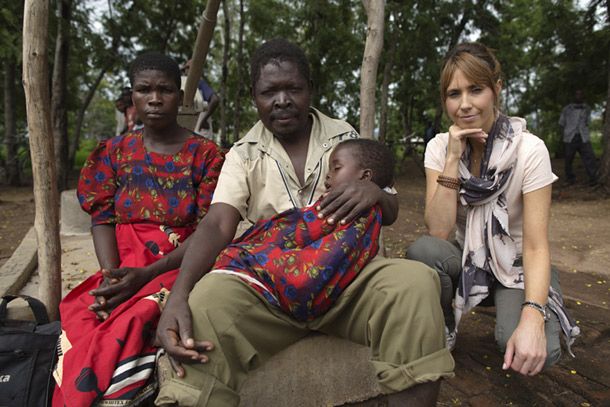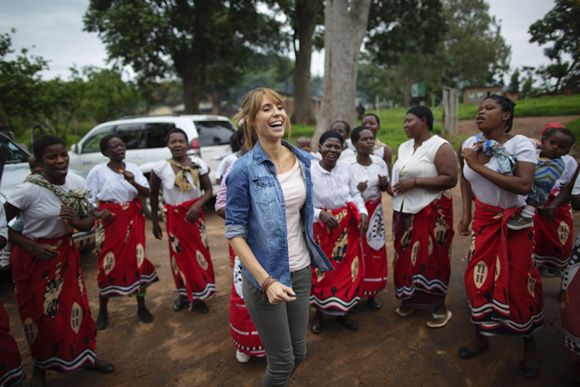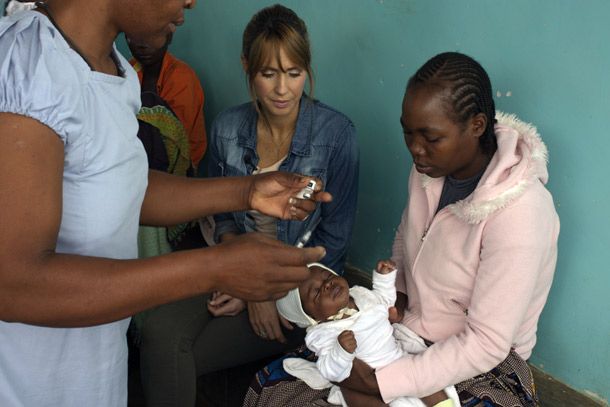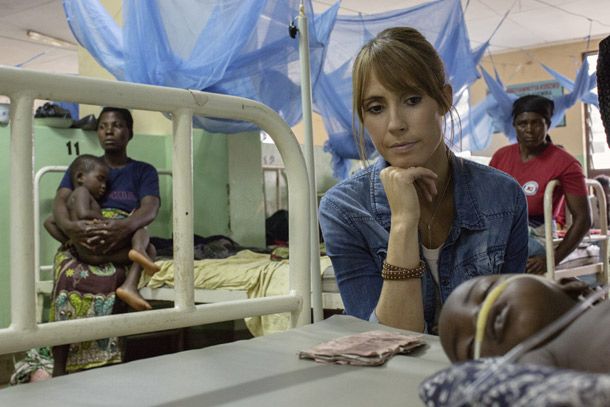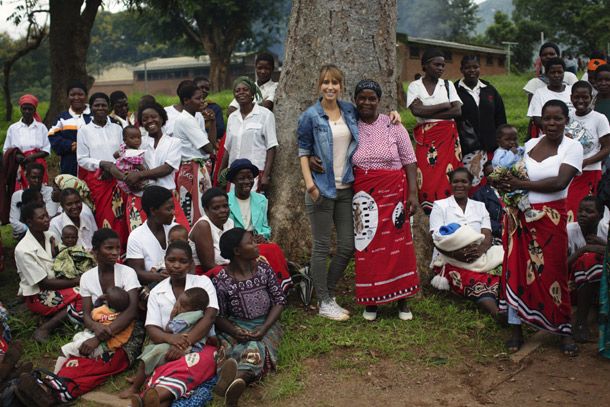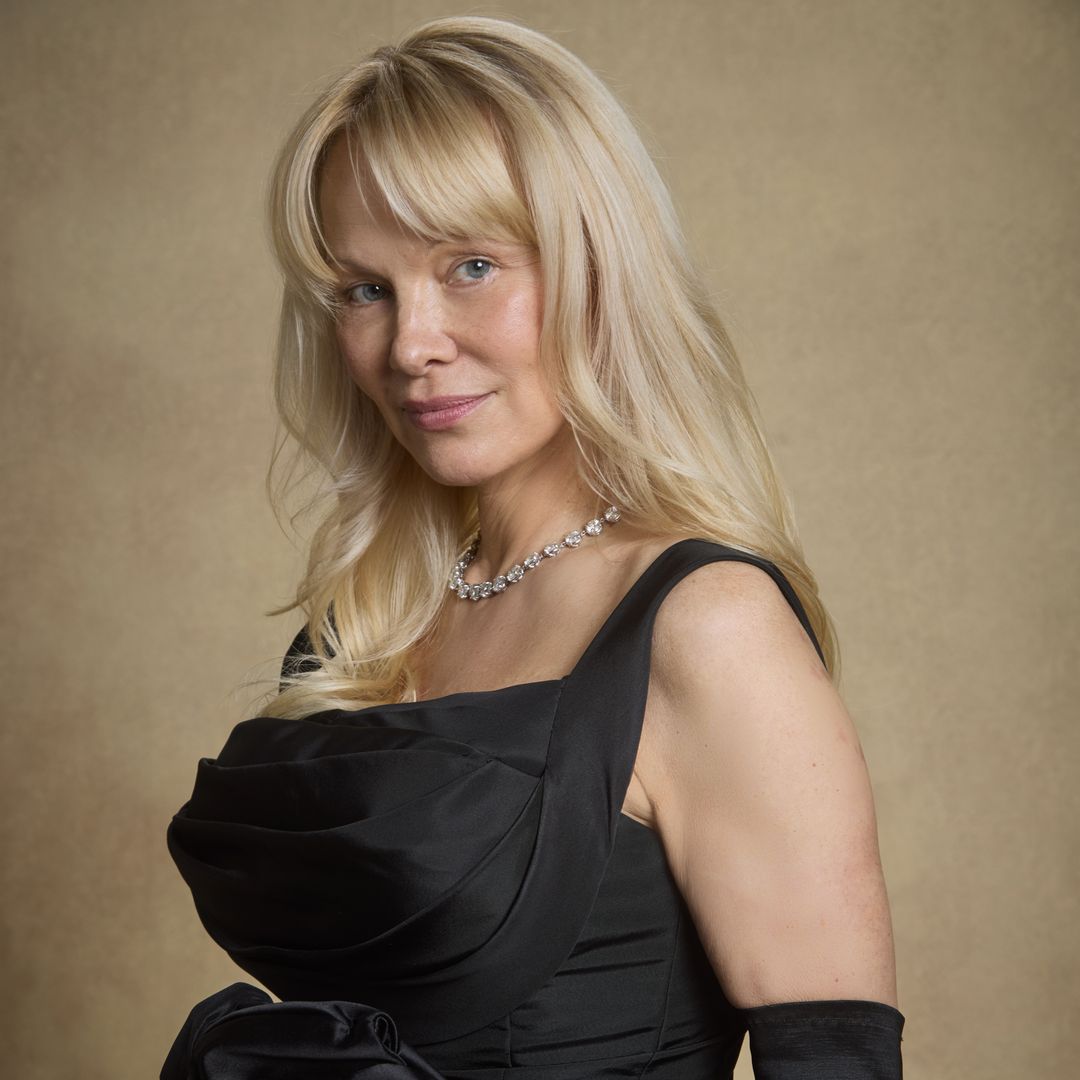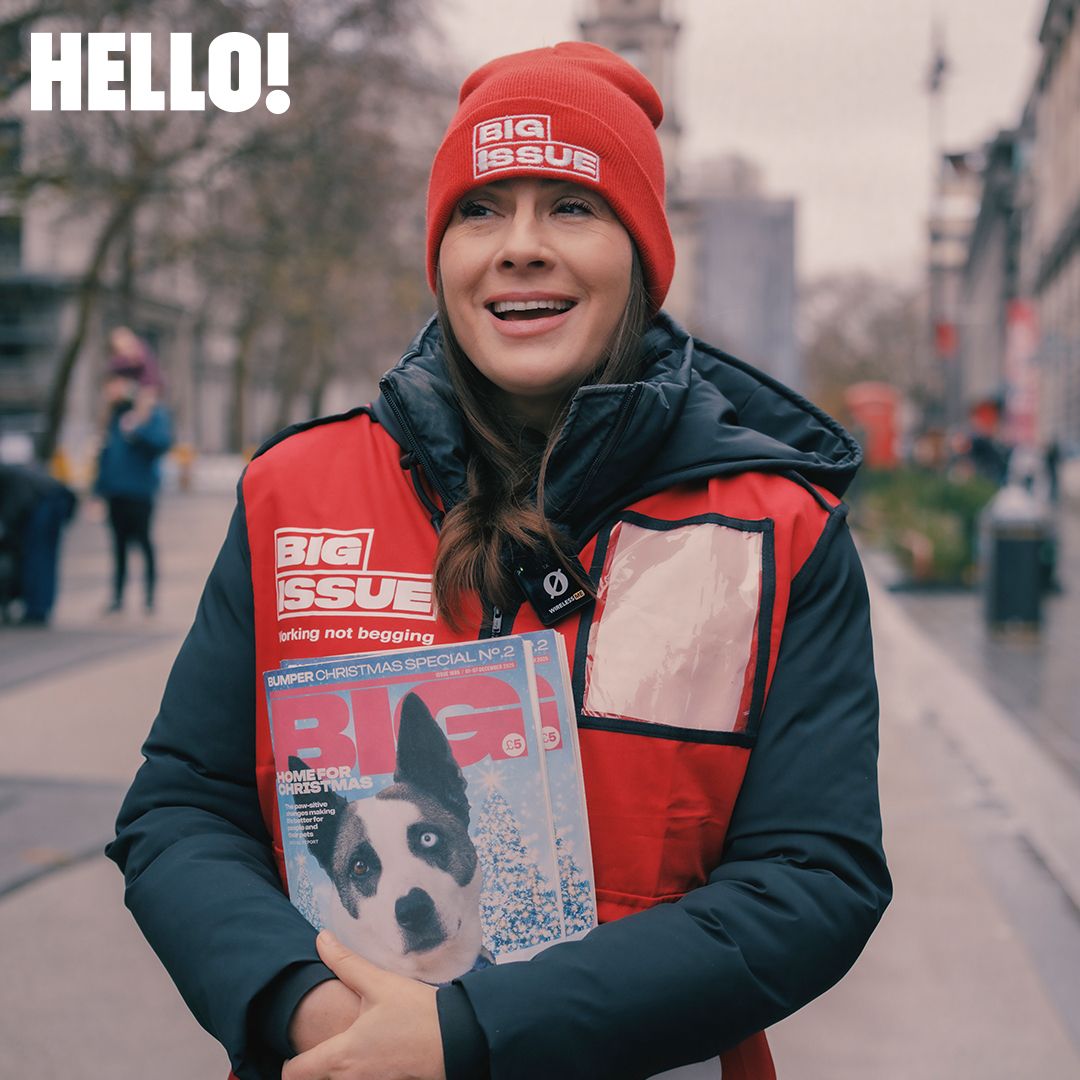Alex Jones, presenter of The One Show and Let's Dance for Comic Relief, kept a diary of her heartbreaking to Malawi for Comic Relief. While visiting the African country with her former boyfriend, TV presenter Steve Jones, Alex saw first-hand how Red Nose Day money is being raised and could not fail to be overwhelmed with emotion.
She visited Women and Children First, a charity project that helps save lives of mothers and babies, and encourages pregnant women to have a safe birth in hospital rather than risk deliveries in their rural homes. Alex, 35, also met mothers in Ntcheu District Hospital and at a rural clinic. She visited a vaccinations clinic in Ntcheu district where babies were receiving the rotavirus vaccine. In Malawi, almost one in ten children does not live to see their fifth birthday. Alex shares moments from the trip with HELLO! Online.
MY MALAWI DIARY, BY ALEX JONES Day 1
Although I've been to Africa before for Red Nose Day back in 2011, I think this trip will really hit home on a personal level. I've been with my boyfriend Charlie for over 18 months and I'd love to be a mum with a couple of kids one day. Giving birth in a safe environment is something that most mums in the UK take for granted but here in Malawi it's often a matter of life or death.
Tragically, many thousands of women die giving birth at home in their rural villages because there's simply no medical help. While this country is incredibly beautiful, it's also one of the poorest and most underdeveloped places in the world. It also has one of the most shocking rates of maternal mortality on the planet and almost one in ten children will not live to see their fifth birthday. Life in such a poverty-stricken landscape is extremely hard, and three-quarters of the population have to survive on less than 80p a day. I'm visiting organisations that use the money raised through Red Nose Day to improve maternal health and get babies vaccinated against preventable killer diseases like diarrhoea.
My first stop is a project called Women and Children First. I'm welcomed by a 40-strong group of singing and dancing mums in vibrant red skirts. It's a joyous sight and I have to join in. This project promotes good healthcare practices and motherhood while linking rural villages to health facilities, and training 100 midwives in the area. Money raised through Comic Relief will help run 144 women's groups, which will reach out to 72,000 people, increasing the survival rates of new mums and their babies. Already, the number of unnecessary deaths is falling. It's brilliant to see a project making such a difference and knowing that just £5 will pay for a teaching session to educate these women. That night I sleep easy, not realising what lies ahead of me tomorrow.
Day 2
I arrive at the emergency maternity unit at Ntcheu District Hospital and nothing can prepare for what I'm about to witness. The nurses are working flat out with only basic equipment. New mums are sitting on the floor with their asphyxiated babies, who are sharing an oxygen concentrator machine. The door slams and a mother is rushed in bleeding heavily. She had a Caesarean section two days ago and started haemorrhaging after her cervix became infected.
It's a really disturbing sight and the nurses work quickly to stabilise her with a blood transfusion before she's moved to the emergency ward. It's very shocking and dramatic but shows why it's so important for expectant and new mums to come to the hospital. The nurse tells me that the new mother would have been dead within two hours if left to bleed alone at home. Sadly, this poor woman won't be able to have any more children as she now needs a hysterectomy. And the operation won't be today as the hospital doesn't have a sterilisation machine to ensure the theatre instruments are safe to use. Your donations will help pay for new equipment which will ensure that operations like hers don't get delayed again.
Across the ward I see a nurse place a newlyborn baby in a makeshift cot. Above her, I'm horrified to see an electric fire dangling from the wall by a piece of string. It looks so dangerous but the nurses are trying to be creative and save premature lives. It's been an eye-opening and emotionally exhausting day and I can't get some of the images out of my head. Being here brings it home how dangerous childbirth can be and how much easier it is for us back in the UK.
Day 3
It's a lovely morning and we arrive early at a rural hospital clinic to find a sea of people sitting in the sun waiting to see one of three medical assistants. Anxious mums use umbrellas, children's health books and bags to mark their place in the queue, which stretches into the distance. Medical assistant Mclean Namaund faces the huge and unrelenting responsibility of trying to treat these patients with limited medical supplies and basic facilities. He quickly assesses the under-fives queue for the most urgent cases, as the little ones can fade and die very quickly.
It’s the rainy season and the hunger months, so most cases are malaria, diarrhoea and malnutrition. It’s terrible to think that each year more than one million children around the world die from vaccine-preventable diseases. But every month Mclean sees hundreds of children suffering from childhood illnesses like diarrhoea that could have been prevented by a £4 vaccination.
I meet Ruth, 46, who has walked barefoot for nearly two hours to the clinic with her daughter Effie aged nearly three. She realised her daughter was sick yesterday and trekked to a clinic but they didn't have any medicine, so she came here. She and her daughter, who has suspected meningitis and malaria, will soon be sent to the district hospital in an ambulance. Next to see Mclean is worried-looking mum Merida, who says her 18-month-old daughter has had diarrhoea for four days.
Most children who die from diarrhoea suffer severe dehydration and fluid loss, which can develop very quickly. She will also be sent to the hospital but has to sit on a filthy floor and wait because there are not enough mattresses in the observation ward. It’s really grim but everyone's doing their best with the little resources they have. McLean tells me that the vaccines are vital in saving young lives but that often he runs out of them. That's where you can help. Every four pounds you donate can help save a little life. If all of these children under five were vaccinated there’s a good chance they wouldn't be here today. They would be playing at home instead. As I lie in bed that night I think about Mclean having to face the same thing again tomorrow, with not enough vaccinations or medicines. It takes me a while to fall asleep.
Day 4
I'm really looking forward to this morning because I'm finishing my time in Malawi and seeing newborn babies get vaccinated against diseases that could easily kill them. Diarrhoea is one of the leading killers of children worldwide, claiming the lives of around more than million children every year.
Eleven per cent of deaths in under-fives are due to diarrhoea but the Rotavirus vaccination, which costs £4, can help prevent thousands of these deaths. Thanks to your generosity, Comic Relief can support GAVI Alliance, an charity organisation that increases access to immunisation in poor countries. The money raised this Red Nose Day can go towards the purchase of lifesaving vaccines in Malawi, giving millions of children a chance of life. Young mum Lesa, 20, has brought her three-month-old daughter Tadalahere. It's a poignant moment for her, as last week her best friend's child died of diarrhoea in her village. "It's very common for babies to die of diarrhoea," she says, adding with a smile, "That's why I wanted to make sure that my daughter lives. Now there is a vaccine, she has a chance to grow up well. That's what every mother wants." She's so right and that's what every mother should expect.
For more information on Red Nose Day, visit rednoseday.com
